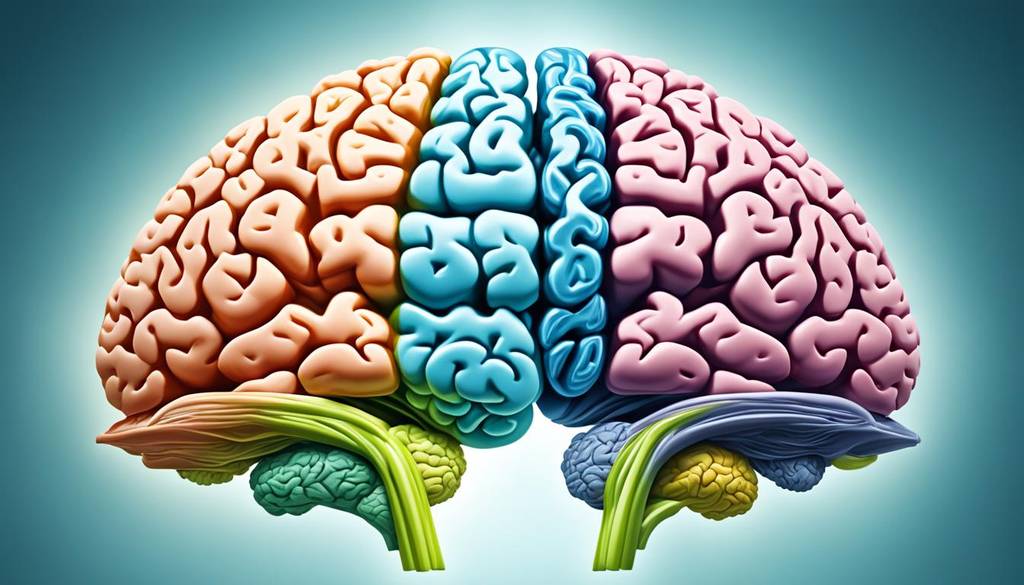Have you ever experienced that sudden surge of energy after enjoying a delicious meal? The feeling of warmth and vitality coursing through your veins as you take that first bite. It’s a sensation that is hard to describe, but undeniably powerful. For me, it’s a reminder of the incredible impact that carbohydrates have on our bodies.
Carbohydrates, often misunderstood and unfairly demonized, are an essential part of our diet. They are the fuel that keeps us going, the energy source that powers our every move. From the simplest tasks to the most demanding physical feats, carbohydrates are there, silently supporting us in the background.
But it’s not just about the energy. Carbohydrates play a vital role in our overall health and well-being. They are the building blocks of our body, helping us grow, repair, and function optimally. From supporting digestion to regulating blood sugar levels, carbohydrates are involved in countless bodily processes, each one contributing to our vitality.
In this article, we will delve into the world of carbohydrates and explore why they are necessary for our body. We will uncover the truth behind the misconceptions and myths, and uncover the incredible benefits that come from including carbohydrates in our diet. So, join me on this journey of discovery as we unravel the mysteries of carbohydrates and embrace their essential role in our lives.
Key Takeaways:
- Carbohydrates are an essential part of our diet and play a crucial role in supporting our overall health.
- They provide our body with the energy it needs to function properly and carry out various physical and cognitive activities.
- Carbohydrates have other important functions, such as aiding in digestion, regulating blood sugar levels, and contributing to heart health.
- Choosing healthy sources of carbohydrates and incorporating them into a balanced diet can have numerous benefits for our well-being.
- Join us as we explore the significance of carbohydrates and debunk common misconceptions, helping you make informed choices for a healthier life.
The Essential Nature of Carbohydrates in Our Diet
Carbohydrates are considered an essential nutrient in our diet, along with proteins and fats. They provide our body with the energy it needs to function properly and carry out various physical and cognitive activities. Carbohydrates serve as the primary fuel source for our brain, muscles, and other organs.
Carbohydrates play a vital role in maintaining stable blood sugar levels and preventing energy crashes. Without an adequate intake of carbohydrates, our body may experience fatigue, low energy levels, and difficulty concentrating. This is especially important for athletes and individuals who engage in regular physical activity, as carbohydrates help support their performance and enhance recovery.
Including carbohydrates in our diet in the right balance and choosing healthy sources can have numerous benefits for our well-being. They not only provide energy but also aid in digestion, regulate blood sugar levels, and contribute to heart health. By incorporating carbohydrates into our meals, we can ensure that our body has the fuel and nutrients it needs to support overall health and optimal functioning.
Carbohydrates are an essential component of a balanced diet, and their inclusion is key to maintaining good health. Understanding the importance of carbohydrates in our diet and the role they play in our body can help us make informed choices that support our overall well-being.
Understanding the Types of Carbohydrates and Their Functions
Carbohydrates can be classified into different types based on their chemical structure and how our body processes them. The main categories of carbohydrates are simple carbs and complex carbs.
The Difference Between Simple and Complex Carbs
Simple carbs, also known as sugars, are composed of one or two sugar molecules and are easily broken down by our body, resulting in a quick release of energy. Common sources of simple carbs include table sugar, honey, fruit juices, and processed sweets.
On the other hand, complex carbs, such as starches and fiber, consist of multiple sugar molecules and take longer to digest. They provide a sustained release of energy and offer additional health benefits. Starches are found in foods like grains, legumes, and starchy vegetables, while fiber is predominantly found in fruits, vegetables, and whole grains.
The Unique Roles of Sugars, Starches, and Fiber
Each type of carbohydrate serves a unique function in our body, contributing to energy production, digestion, and overall health. Sugars, or simple carbs, provide a quick source of energy. Starches, or complex carbs, serve as a sustained energy source and are important for endurance activities. Fiber, also a complex carb, aids in digestion, promotes a healthy gut, and helps regulate blood sugar levels.
Incorporating a balance of different types of carbohydrates in our diet is essential for maintaining optimal health and energy levels.
What Are Carbohydrates and Why Are They Necessary for Our Body
Carbohydrates, alongside proteins and fats, are one of the three main macronutrients that our body requires in significant amounts. Composed of carbon, hydrogen, and oxygen atoms, carbohydrates are found in a variety of foods. Their primary role in our body is to provide the energy needed for vital physiological processes, including cell growth, tissue repair, and muscle contraction. Carbohydrates serve as the primary fuel source for our brain and central nervous system, ensuring proper cognitive function. Moreover, carbohydrates contribute to the synthesis of crucial molecules such as DNA and RNA, which are essential for various bodily functions.
Without an adequate intake of carbohydrates, our body would be deprived of the energy necessary for everyday activities. Fatigue, weakness, and impaired bodily functions can result from a lack of carbohydrates. Thus, it is crucial to include carbohydrates in our diet to support overall health and well-being.
The Role of Carbohydrates in Energy Production
Carbohydrates are the primary source of energy for our body. When we consume carbohydrates, our body breaks them down into glucose, which is then transported through the bloodstream to our cells. Glucose is used by our cells to produce adenosine triphosphate (ATP), the molecule that stores and releases energy. Carbohydrates supply our body with glucose, ensuring a constant and readily available source of energy. This is particularly important during physical activity, as our muscles rely heavily on glucose for optimal performance. Carbohydrates also play a vital role in enhancing endurance and preventing muscle fatigue. Adequate carbohydrate intake is essential for maintaining energy levels, improving physical performance, and supporting overall body functioning.
How Carbs Convert to Glucose for Energy
When we consume carbohydrates, they undergo digestion in our gastrointestinal tract. Enzymes break down complex carbohydrates into simple sugars, such as glucose, fructose, and galactose. Glucose is the primary form of sugar used by our cells for energy production. It enters our bloodstream and is transported to our cells, where it undergoes a series of metabolic processes to produce ATP, the molecule responsible for powering cellular functions. This conversion of carbohydrates to glucose ensures that our body has a constant and efficient energy source for various physiological processes.
Carbohydrates’ Impact on Physical Activity and Performance
Carbohydrates play a crucial role in physical activity and performance. During exercise, our muscles rely on glucose as their primary fuel source. Carbohydrates are stored in our muscles and liver as glycogen, which can be quickly broken down into glucose when needed. Consuming carbohydrates before and during physical activity replenishes these glycogen stores, providing a sustained release of glucose and improving endurance. Adequate carbohydrate intake is essential for optimal physical performance, as it enhances muscle function, delays fatigue, and allows for longer and more intense workouts. Whether you’re a professional athlete or a fitness enthusiast, incorporating carbohydrates into your diet can significantly impact your physical activity and performance levels.
Benefits of Including Carbohydrates in Your Diet
Including carbohydrates in our diet provides numerous benefits for our overall health and well-being. Carbohydrates are an essential source of energy, offering sustained fuel for our body and supporting physical activity. They play a crucial role in keeping us energized throughout the day, allowing us to perform at our best.
One of the key benefits of including carbohydrates in our diet is their importance in weight management. Contrary to popular belief, carbohydrates can actually help us maintain a healthy weight. By including complex carbohydrates like whole grains, fruits, and vegetables in our meals, we promote feelings of fullness and satiety. This reduces the likelihood of overeating and helps us maintain a balanced calorie intake.
Carbohydrates also contribute to heart health and disease prevention. Many carbohydrate-rich foods, especially those high in fiber, can help lower cholesterol levels and reduce the risk of heart disease. By including whole grains, fruits, and vegetables in our diet, we can support a healthy heart and reduce the risk of cardiovascular conditions.
Furthermore, carbohydrates play a significant role in maintaining stable blood sugar levels. By choosing carbohydrates that are low on the glycemic index, such as whole grains, legumes, and non-starchy vegetables, we can prevent blood sugar spikes and crashes. This promotes sustained energy levels and helps regulate our mood and overall well-being.
Incorporating carbohydrates into our diet in a balanced manner is essential for overall health. By choosing healthy sources like whole grains, fruits, and vegetables, we provide our body with essential nutrients, vitamins, minerals, and fiber. Fiber, in particular, is crucial for digestive health and can help lower the risk of certain diseases, including heart disease.
Remember, it’s not about eliminating carbohydrates from our diet, but rather choosing the right ones and consuming them in moderation. By including carbohydrates in our meals in a thoughtful and balanced way, we can enjoy their numerous benefits and support our overall health and well-being.

Carbohydrates: Not All Are Created Equal
When it comes to carbohydrates, not all options are created equal. Making the right choices in your carbohydrate sources can have a significant impact on your health and overall well-being. It is crucial to choose healthy carbs over refined options whenever possible. Refined carbohydrates, such as white bread, sugary cereals, and processed snacks, have gone through extensive processing, which removes valuable nutrients and fiber.
Instead, opt for whole grains, which contain the entire grain, including the bran, germ, and endosperm. Whole grains are a healthier choice as they provide a plethora of benefits for your body. They are rich in fiber, vitamins, and minerals, and offer greater health advantages, such as a reduced risk of heart disease and improved digestion.
Incorporating fiber-rich carbohydrates into your diet can further enhance your health and reduce the risk of chronic diseases. Including fruits, vegetables, and legumes in your carbohydrate choices can promote good gastrointestinal function and help reduce health risks. Fiber plays a vital role in reducing the risk of various health problems, such as heart disease and certain types of cancer.

Choosing Healthy Carbs Over Refined Options
When selecting your carbohydrates, it is essential to prioritize healthy choices over refined options. Refined carbohydrates undergo extensive processing, which removes essential nutrients such as fiber and vital minerals. This processing also results in a quick release of energy, followed by a rapid crash, leaving you feeling unsatisfied and craving more.
Instead, choose whole grain options such as whole wheat bread, brown rice, quinoa, and oats. Whole grains contain all parts of the grain, including the bran, germ, and endosperm, ensuring you get the full nutritional benefits. They provide sustained energy, release glucose more slowly into your bloodstream, keep you feeling fuller for longer, and help stabilize your blood sugar levels.
Identifying Whole Grains and Their Benefits
Identifying whole grains can empower you to make healthier choices and reap their numerous benefits. Look for products labeled “100% whole grain” or “whole wheat” to ensure you are choosing the right options. Whole grains are rich in fiber, which aids in digestion, helps maintain a healthy weight, and reduces the risk of heart disease, type 2 diabetes, and certain cancers.
Incorporating whole grains into your diet can also provide essential vitamins and minerals, such as B vitamins, iron, and magnesium. These nutrients contribute to overall health and support various bodily functions, including brain function, energy production, and immune system function.
Here is a table showcasing examples of whole grains and their benefits:
| Whole Grain | Benefits |
|---|---|
| Whole wheat | High in fiber, supports heart health |
| Brown rice | Contains antioxidants, aids in digestion |
| Quinoa | High in protein, rich in essential amino acids |
| Oats | Improves cholesterol levels, promotes satiety |
By incorporating whole grains into your diet, you can enjoy the numerous health benefits they provide while enjoying delicious and satisfying meals. Make a conscious effort to choose whole grains over refined options whenever possible, and reap the rewards of a healthier lifestyle.
Importance of Carbohydrates in Weight Management
Carbohydrates play a crucial role in weight management. While they have often been associated with weight gain, it is important to note that it is the quality and quantity of carbohydrates that matter, rather than their presence alone. Healthy carbohydrate sources, such as whole grains, fruits, and vegetables, can actually support weight management by providing essential nutrients and promoting feelings of fullness.
These complex carbohydrates take longer to digest, resulting in a slower release of energy and preventing spikes in blood sugar levels. By choosing carbohydrates that are high in fiber and have a lower glycemic index, individuals can enjoy sustained energy levels and feel satisfied for longer periods, reducing the likelihood of overeating.
To optimize weight management, it is important to balance carbohydrate intake with other macronutrients, such as proteins and healthy fats. Including lean proteins, like poultry, fish, and legumes, can help promote muscle growth and repair, while healthy fats, such as those found in nuts, seeds, and avocados, can enhance satiety and provide essential nutrients.
“Balancing carbohydrate intake with other macronutrients is key to maintaining a healthy weight and supporting overall well-being.”
When planning meals, it’s beneficial to consider portion sizes and choose a variety of nutrient-dense foods. This balanced approach ensures that the body receives the necessary nutrients while maintaining a healthy weight. It’s important to note that individual carbohydrate needs may differ based on factors such as age, sex, activity level, and overall health. Consulting with a healthcare professional or registered dietitian can provide personalized guidance on determining the optimal amount of carbohydrates for individual needs.
By adopting a balanced approach to carbohydrate consumption, individuals can support weight management goals and promote overall health and well-being.

Carbohydrates and Their Impact on Body Functioning
Carbohydrates have a significant impact on various aspects of our body functioning. They play a crucial role in maintaining digestive health by providing bulk and promoting regular bowel movements. Including fiber-rich carbohydrates in our diet, such as fruits, vegetables, and whole grains, can prevent constipation and promote overall gastrointestinal well-being.
Additionally, carbohydrates are essential in regulating blood sugar levels. When we consume carbohydrates, they are digested and converted into glucose, which enters our bloodstream. The hormone insulin helps transport glucose from the blood into our cells, maintaining stable blood sugar levels. A balanced carbohydrate intake ensures that our blood sugar remains within a healthy range, preventing both high and low blood sugar levels, which can have detrimental effects on our overall health and well-being.
Why Your Body Needs Carbs: Debunking Myths
Despite the importance of carbohydrates in our diet, there are various misconceptions and myths surrounding their role in our body. Some people believe that cutting out carbohydrates entirely is necessary for weight loss or optimal health. However, this is not the case. Carbohydrates provide essential nutrients and energy that our body needs to function properly. Eliminating carbohydrates from our diet can lead to nutrient deficiencies, low energy levels, and potential health issues. It is essential to understand that not all carbohydrates are bad and that choosing healthy sources and practicing portion control is key. Debunking these myths and understanding the role and benefits of carbohydrates is crucial in maintaining a balanced and healthy approach to our diet.

“Carbohydrates are the enemy!”
“Cutting carbs is the key to weight loss!”
These are just a few of the common misconceptions and myths surrounding carbohydrates. The truth is, our body needs carbs for various reasons, including providing energy, supporting brain function, and aiding in digestion. By debunking these myths and understanding the role of carbohydrates, we can make informed dietary choices that promote our overall health and well-being.
One of the most common myths about carbohydrates is that they lead to weight gain. While it is true that consuming excessive amounts of unhealthy, refined carbohydrates can contribute to weight gain, not all carbohydrates are created equal. Choosing healthy sources of carbohydrates, such as whole grains, fruits, and vegetables, provides us with essential nutrients, fiber, and energy without causing weight gain when consumed in moderation.
Another common misconception is that cutting out carbohydrates entirely is necessary for weight loss. While reducing carb intake can be a strategy for weight loss, completely eliminating carbs from our diet is not sustainable or healthy in the long run. Carbohydrates are a primary source of energy for our body, and without them, we may experience fatigue, mood swings, and difficulty concentrating. The key is to choose the right types of carbs and practice portion control rather than completely cutting them out.
It is important to understand that carbohydrates come in different forms, and not all carbs are bad. Simple carbohydrates, such as those found in processed sugars and sweets, can lead to blood sugar spikes and energy crashes. On the other hand, complex carbohydrates, such as whole grains, legumes, and vegetables, provide a slow and steady release of energy and are rich in fiber, which aids in digestion and helps us feel full and satisfied.
By debunking these common myths about carbohydrates and understanding their role and benefits in our diet, we can make informed choices based on scientific evidence and promote our overall health and well-being.
The Impact of Carbohydrates on Mental Health and Cognition
Carbohydrates have a significant impact on our mental health and cognition. They play a crucial role in the production of serotonin, a neurotransmitter that regulates mood, appetite, and sleep. Serotonin is derived from the amino acid tryptophan, which can be obtained from certain carbohydrate-rich foods, such as whole grains and legumes. Including these foods in our diet ensures an adequate supply of tryptophan, leading to increased serotonin production and improved mood.
In addition to their role in serotonin production, carbohydrates also play a part in our response to stress and mood stability. During times of stress, our body releases the hormone cortisol, which can affect our emotional well-being. Adequate carbohydrate intake can help regulate cortisol levels and promote a more stable mood.
Understanding the impact of carbohydrates on mental health and cognition can guide us in making informed dietary choices that support our overall well-being.

Carbs and Their Role in Serotonin Production
Carbohydrates play a crucial role in the production of serotonin, a neurotransmitter that is involved in regulating mood, appetite, and sleep. Serotonin is derived from the amino acid tryptophan, which is obtained from certain carbohydrate-rich foods. Tryptophan is transported to the brain, where it is converted into serotonin. Including carbohydrate-rich foods in our diet ensures a sufficient supply of tryptophan, leading to increased serotonin production and improved mood.
The Relationship Between Carbs, Stress, and Mood Stability
Carbohydrates also play a role in our response to stress and mood stability. During times of stress, our body releases the hormone cortisol, which can affect our emotional well-being. Adequate carbohydrate intake helps regulate cortisol levels and promote a more stable mood, reducing the negative impact of stress on our mental health. Including a balanced amount of carbohydrates in our diet can contribute to overall mood stability and well-being.
In summary, carbohydrates have a significant impact on mental health and cognition. They play a crucial role in serotonin production and can help regulate cortisol levels, contributing to mood stability and overall well-being.
Significance of Carbohydrates for Overall Health
Carbohydrates play a vital role in promoting overall health and well-being. They provide essential nutrients and energy that our body needs to function optimally. Carbohydrates contribute to heart health and disease prevention, while fiber, a type of carbohydrate, plays a key role in reducing health risks.
Carbs’ Contribution to Heart Health and Disease Prevention
Incorporating healthy carbohydrate sources, such as whole grains, fruits, and vegetables, into our diet can significantly contribute to heart health. Diets rich in fiber, a type of carbohydrate found in plant-based foods, have been associated with a reduced risk of heart disease, high blood pressure, and stroke. Fiber helps lower cholesterol levels, regulate blood sugar levels, and maintain a healthy weight, all of which are important factors in preventing cardiovascular diseases.
By choosing whole grains over refined carbohydrates and opting for fiber-rich fruits and vegetables, we can actively support our heart health and reduce the risk of heart-related conditions. Including carbohydrates from these sources ensures an adequate intake of essential nutrients and fiber, ultimately promoting a healthy cardiovascular system.
The Role of Fiber in Reducing Health Risks
Fiber, a component of carbohydrates, offers significant health benefits and plays a vital role in reducing various health risks. High-fiber diets have been shown to lower the risk of chronic diseases, including certain types of cancer, such as colorectal cancer. Fiber promotes a healthy digestive system by aiding in regular bowel movements and preventing constipation. It also helps maintain stable blood sugar levels, providing sustained energy and reducing the risk of developing type 2 diabetes.
Incorporating fiber-rich carbohydrate sources, such as whole grains, fruits, and vegetables, into our daily meals can have a profound impact on our overall health. These foods provide not only essential nutrients but also valuable fiber, which contributes to a well-functioning digestive system and reduced health risks.
To visualize the significance of carbohydrates for overall health, refer to the following table:
| Health Benefits | Carbohydrate Sources |
|---|---|
| Heart Health | Whole grains, fruits, and vegetables |
| Disease Prevention | Fiber-rich foods, including whole grains, fruits, and vegetables |
| Reduced Risk of Chronic Diseases | High-fiber foods, such as whole grains, fruits, and vegetables |
By understanding the significance of carbohydrates for our overall health and making informed choices to include them in our diet, we can support our well-being and reduce the risk of various health conditions.
Strategic Consumption of Carbohydrates for Optimal Health
Consuming carbohydrates strategically is key to achieving optimal health. Each individual’s carbohydrate needs may vary based on factors such as age, sex, activity level, and overall health. It is important to personalize carbohydrate intake to meet individual requirements and preferences.
Some tips for personalizing your carbohydrate intake include:
- Understand your daily carbohydrate needs: Determine the amount of carbohydrates your body requires based on your activity level and overall health. This can help guide your decision on how to incorporate carbohydrates into your diet.
- Monitor blood sugar levels: If you have diabetes or other health conditions that require careful regulation of blood sugar levels, it is important to monitor your carbohydrate intake. Consulting with a healthcare professional or registered dietitian can provide personalized guidance in managing your carbohydrate consumption.
- Experiment with different carbohydrate sources: Everyone’s body responds differently to different types of carbohydrates. Trying out a variety of carbohydrate sources, such as whole grains, fruits, and vegetables, can help you determine which ones work best for your body and provide the most benefits for your health.
By being mindful of your carbohydrate consumption and making informed choices, you can optimize your health and well-being.
Incorporating Carbohydrates in a Balanced Diet
Incorporating carbohydrates into a balanced diet is essential for overall health. A balanced meal should include a variety of nutrients, including carbohydrates, proteins, and fats. When selecting carbohydrates for daily meals, opt for healthy choices like whole grains, fruits, and vegetables. These sources of carbohydrates provide essential vitamins, minerals, and fiber.
One way to ensure a healthy carb selection for daily meals is to prioritize whole grains over refined options. Whole grains, such as brown rice, quinoa, and whole wheat bread, contain the entire grain, including the bran, germ, and endosperm. They are rich in fiber, which promotes digestive health and helps regulate blood sugar levels. Refined carbohydrates, on the other hand, have undergone processing that removes valuable nutrients and fiber.
In addition to whole grains, including a variety of fruits and vegetables in your meals can provide healthy carbohydrates. Fruits are naturally sweet and contain fiber, vitamins, and minerals. Vegetables are low in calories and rich in nutrients, making them an excellent choice for incorporating healthy carbs into your diet.
To balance carbs with other macronutrients, include lean sources of protein and healthy fats in your meals. Protein and fat can help regulate the release of glucose into the bloodstream, preventing spikes in blood sugar levels and promoting satiety. Choose lean proteins such as poultry, fish, and legumes, and incorporate sources of healthy fats like avocados, nuts, and olive oil.
A well-rounded and balanced diet consists of incorporating carbohydrates in the right proportion with proteins and fats. By selecting healthy carbohydrate sources, such as whole grains, fruits, and vegetables, and balancing them with other macronutrients, you can ensure a nutritious and satisfying diet.
How to Determine the Right Amount of Carbohydrates for You
Determining the right amount of carbohydrates for your needs is essential for maintaining optimal health and well-being. The amount of carbohydrates required can vary based on individual factors such as age, sex, activity level, and overall health. To ensure you are consuming the right amount of carbohydrates for your specific needs, it is important to understand your body’s requirements and make necessary adjustments.
Understanding Daily Carbohydrate Needs and Variability
Daily carbohydrate needs can vary from person to person. Factors such as age, sex, and activity level contribute to the variability in carbohydrate requirements. For example, athletes and individuals who engage in intense physical activity may require more carbohydrates to support their energy needs and muscle recovery. On the other hand, individuals with certain medical conditions like diabetes may need to monitor their carbohydrate intake more closely to manage blood sugar levels.
Consulting with a healthcare professional or registered dietitian can provide personalized guidance on determining the right amount of carbohydrates for your individual needs. They can assess your specific circumstances and help you establish a carbohydrate intake plan that aligns with your goals and overall health.
Tips for Personalizing Your Carbohydrate Intake
Personalizing your carbohydrate intake involves paying attention to your body’s responses and making informed choices. Here are some tips to help you personalize your carbohydrate intake:
- Monitor your daily carbohydrate intake: Keep track of the amount of carbohydrates you consume each day. This can help you determine if you are meeting your daily carbohydrate needs or if adjustments are necessary.
- Experiment with portion sizes and timing: Explore how different portion sizes and timings of carbohydrate-rich meals affect your energy levels and overall well-being. Adjustments can be made based on your specific needs and preferences.
- Pay attention to your body’s response: Every individual has a unique response to carbohydrates. Observe how different carbohydrate sources affect your energy levels, digestion, and satiety. This can help you identify the types of carbohydrates that work best for your body.
By personalizing your carbohydrate intake, you can ensure that you are consuming the right amount of carbohydrates for your individual needs. Remember to prioritize nutrient-dense sources of carbohydrates, such as whole grains, fruits, and vegetables, to maximize the health benefits of your carbohydrate intake.
Conclusion
Carbohydrates are an indispensable part of a healthy diet, providing the energy necessary for various bodily processes and supporting overall well-being. It is crucial not to eliminate or restrict carbohydrates from our diet but to make informed choices and include them from healthy sources. Whole grains, fruits, and vegetables are excellent options that offer essential nutrients, fiber, and numerous health benefits.
By understanding the vital role of carbohydrates and incorporating them into a balanced and varied diet, we can enhance our overall health. Carbohydrates are not the enemy when it comes to weight management but rather play a significant role in satiety and preventing energy crashes. Balancing carbohydrate intake with other macronutrients, such as proteins and fats, ensures stable blood sugar levels and satisfaction after meals.
Moreover, carbohydrates contribute to heart health, digestive well-being, and disease prevention. Including fiber-rich carbohydrates helps regulate cholesterol and blood sugar levels, reducing the risk of heart disease and certain cancers. Additionally, carbohydrates can positively impact mental health and cognition by supporting serotonin production and stabilizing mood.
To optimize our carbohydrate consumption, it is essential to personalize our intake based on individual needs and preferences. By monitoring our daily carbohydrate intake, experimenting with portion sizes, and paying attention to how our bodies respond to different carbohydrate sources, we can determine the right amount for optimal health. Consulting with healthcare professionals or registered dietitians can provide further guidance in tailoring carbohydrate intake.
In conclusion, carbohydrates are a crucial component of our diet that should be embraced and chosen wisely. Incorporating carbohydrates from healthy sources benefits our body in numerous ways, supporting energy production, heart health, digestion, mental well-being, and more. By making informed decisions and personalizing our carbohydrate intake, we can maintain a balanced and nutritious diet that promotes overall health and well-being.
FAQ
What are carbohydrates and why are they necessary for our body?
What is the role of carbohydrates in our body?
What are the benefits of including carbohydrates in our diet?
What are the different types of carbohydrates and their functions?
Why are carbohydrates significant for energy production?
What is the impact of carbohydrates on body functioning?
Are all carbohydrates created equal?
How do carbohydrates contribute to weight management?
What is the link between carbohydrates and digestive health?
What are common misconceptions about carbohydrates?
How do carbohydrates impact mental health and cognition?
Are carbohydrates important for overall health?
How can I personalize my carbohydrate intake for optimal health?
How can I incorporate carbohydrates into a balanced diet?
How do I determine the right amount of carbohydrates for my needs?
What is the conclusion about the importance of carbohydrates in our body?
Source Links
- https://www.hsph.harvard.edu/nutritionsource/carbohydrates/
- https://behavioralnutrition.org/healthy-eating-with-carbohydrates/
- https://medlineplus.gov/carbohydrates.html



